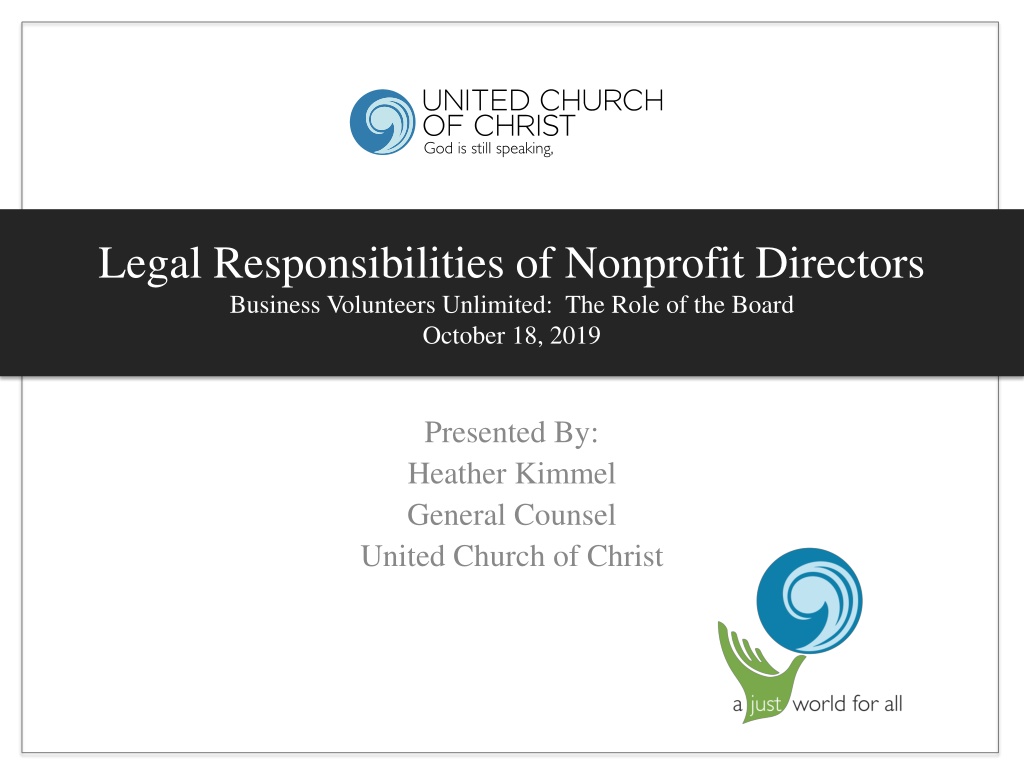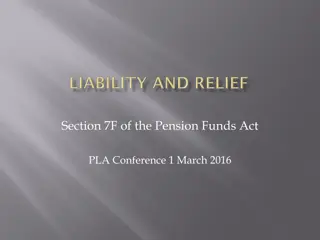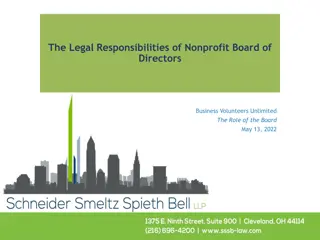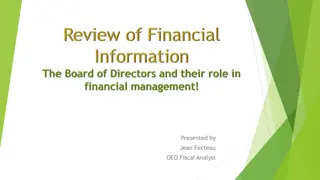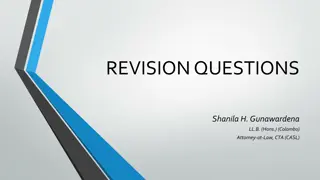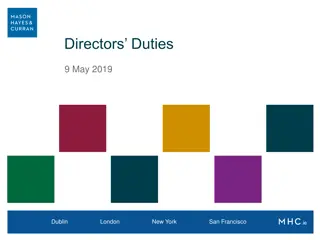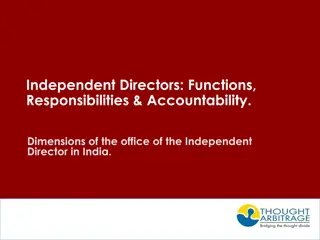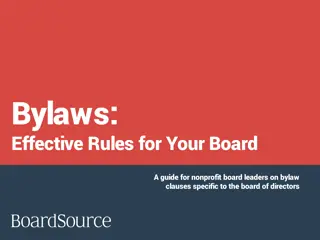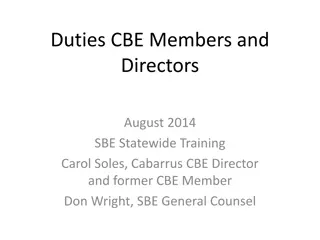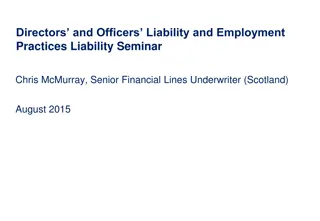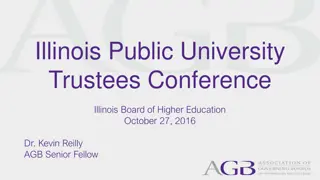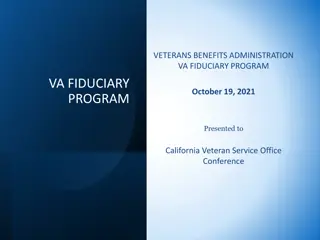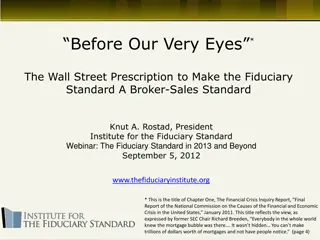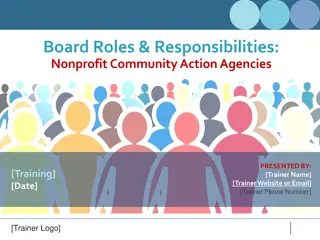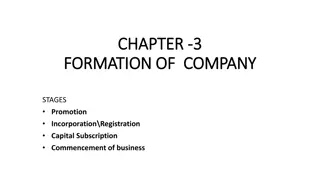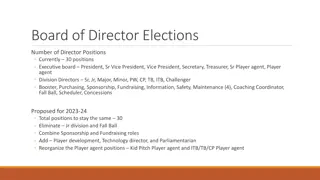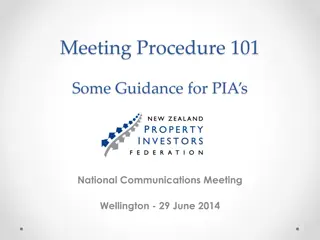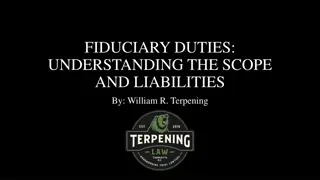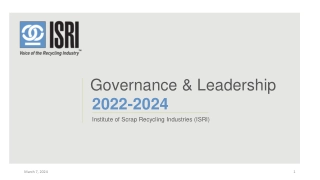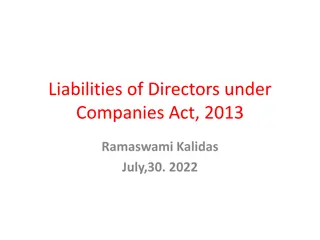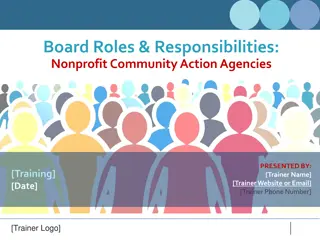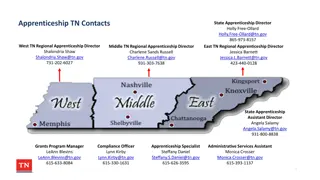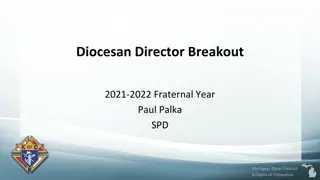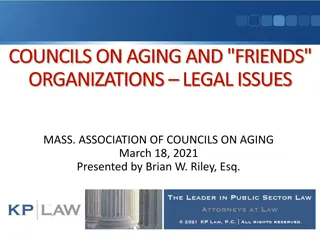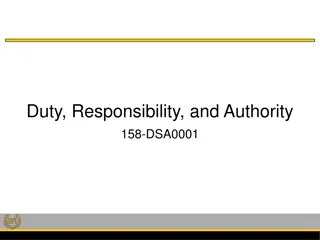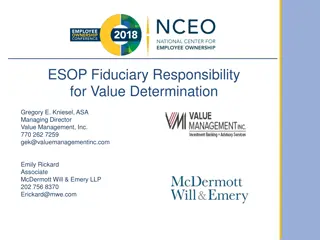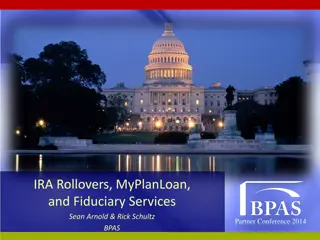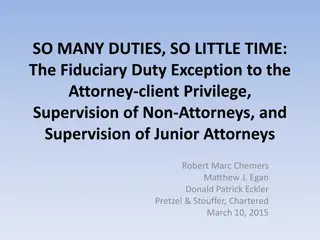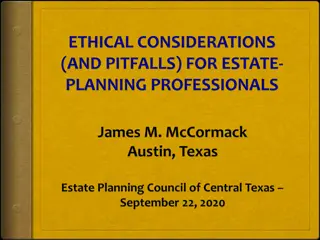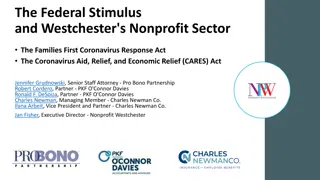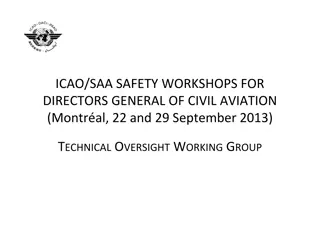Legal Responsibilities and Fiduciary Duties of Nonprofit Directors
Understanding the legal responsibilities and fiduciary duties of nonprofit directors is crucial for effective governance. Directors must act in the best interests of the organization, exercise authority under the direction of the board, and fulfill fiduciary obligations with loyalty, honesty, and care. They are required to comply with laws, manage accounts responsibly, and inquire diligently to protect the nonprofit's stakeholders.
Download Presentation

Please find below an Image/Link to download the presentation.
The content on the website is provided AS IS for your information and personal use only. It may not be sold, licensed, or shared on other websites without obtaining consent from the author. Download presentation by click this link. If you encounter any issues during the download, it is possible that the publisher has removed the file from their server.
E N D
Presentation Transcript
Legal Responsibilities of Nonprofit Directors Business Volunteers Unlimited: The Role of the Board October 18, 2019 Presented By: Heather Kimmel General Counsel United Church of Christ
Except where the law, the articles, or the regulations require that the action be otherwise authorized or taken, all of the authority of a corporation shall be exercised by under the direction of its directors. -- Ohio Rev. Code 1702.30(A) Directors Authority
Fiduciary: A person in a position of authority who is obligated to act on behalf of another in good faith and with care, candor, and loyalty in fulfilling the obligation. Fiduciary Relationship Directors are fiduciaries of their nonprofits.
What Some of You Are Thinking: Did you just call me the F-word? 4
A duty to act with loyalty, honesty, and in the best interests of the beneficiary of the fiduciary relationship your nonprofit. Fiduciary Duty
A director shall perform the duties of a director . . . in good faith . . . in . . . the best interests of the corporation, and with the care that an ordinarily prudent person in a like position would use under similar circumstances. --Ohio Rev. Code 1702.30(B). Source of Fiduciary Duties
Director is entitled to rely upon information presented by: Directors, officers, or staff Counsel, accountants, or other experts Committee of directors -- Ohio Rev. Code 1702.30 Fiduciary Duties
Duty of Compliance Duty of Care Duty to Manage Accounts Duty of Loyalty Fiduciary Duties
A useful corollary: DUTY OF INQUIRY Fiduciary Duties
Duty of Compliance Do not exceed your authority. Follow the mission and the purpose. Follow the law. Duty of Compliance 10
Duty of Care Attend Prepare Participate Duty of Care Be Use Best Judgment Informed 11
Duty of Care: Be Informed Organizing Documents Board Committees and Members Website, Policies, Financials 12
Duty of Care: Prepare Prepare for Meetings Review Agenda Research Complex Issues Understand the Issues 13
Duty of Care: Attend the Meetings Show Up to Do Business 14
Duty of Care: Actively Participate Listen to Discussion Ask Questions Vote 15
Duty of Care: Use Your Best Judgment Interests of the Organization Come First May Be Contrary to Personal Desire May Be Contrary to Staff/Other Board Members 16
Duty to Manage Accounts Keep Accurate Records Honor Donor Intent Develop Responsible Budget Duty to Manage Accounts Prudent Investor Rule Checks and Balances 17
Duty of Loyalty Support Board's Decisions Nonprofit s Interests First Avoid Conflicts of Interest Duty of Loyalty 18
Higher burden of proof for claim of breach of fiduciary duty: Ohio Rev. Code 1702.30(D)(1) Business Judgment Rule: presumption in favor of directors Protection for volunteers against personal injury: Ohio Rev. Code 2305.38 Indemnification D&O insurance policy Protections from Liability
Prepare for and attend meetings; ensure accurate recordkeeping. Ask LOTS of questions: no rubber-stamping. Be familiar with governing documents and insist on adherence. Oversee the CEO (do not micromanage). Approve budget and monitor financial condition. Best Practices
